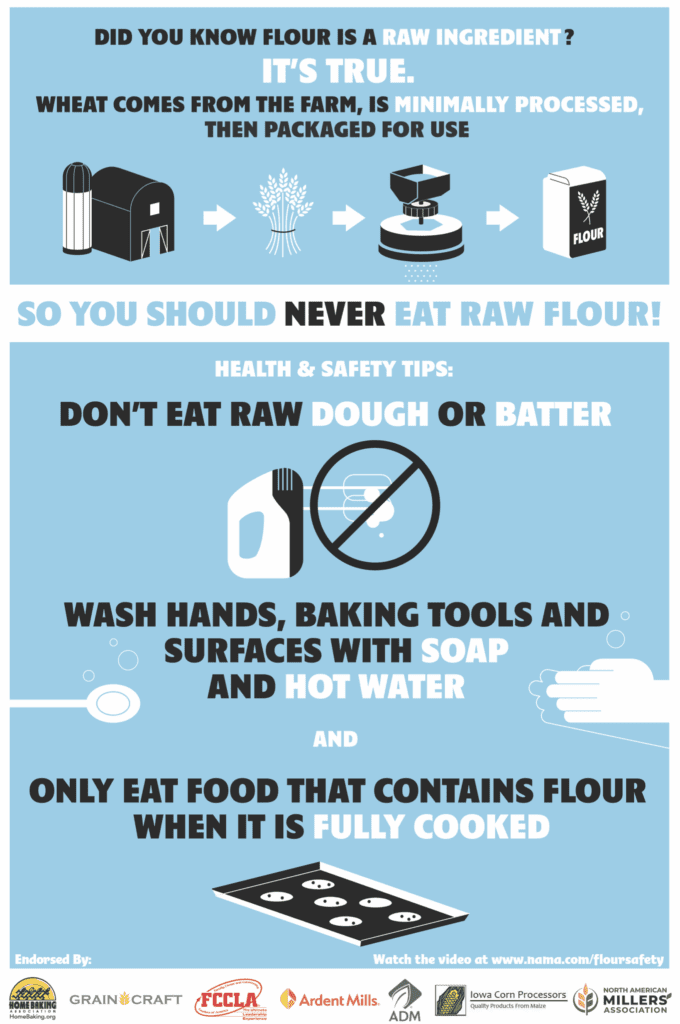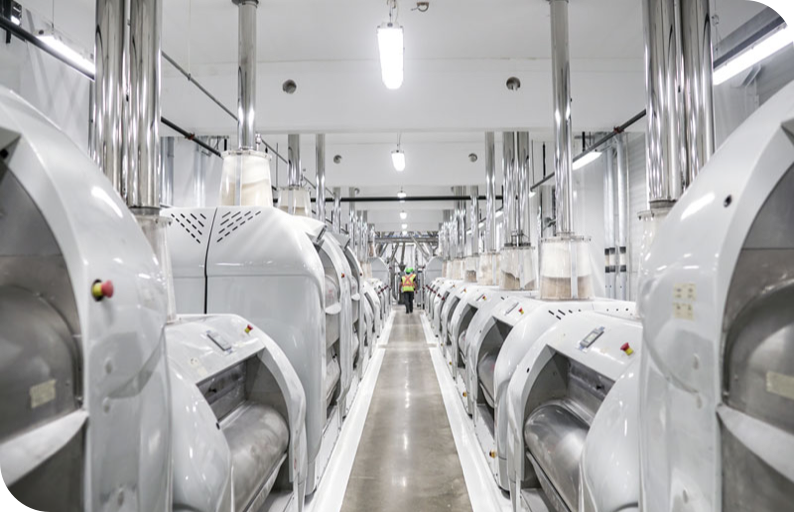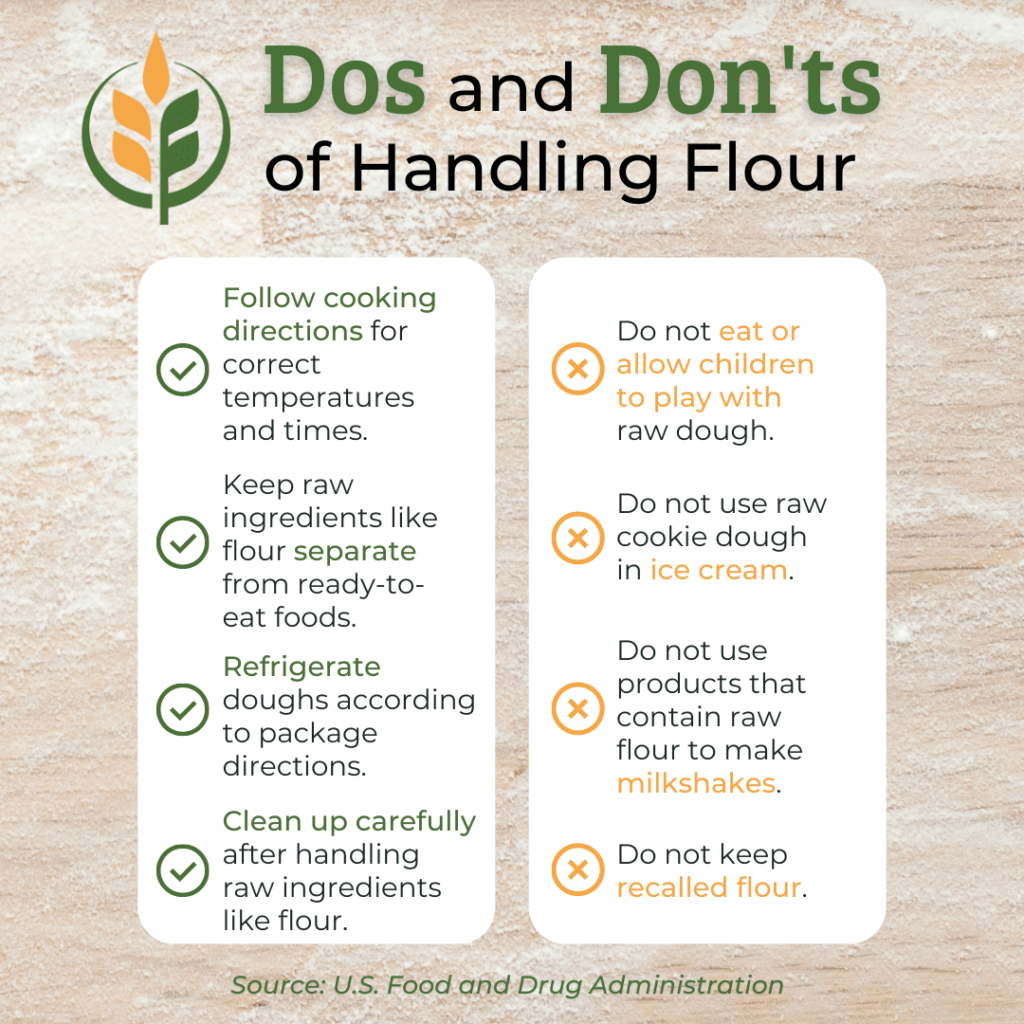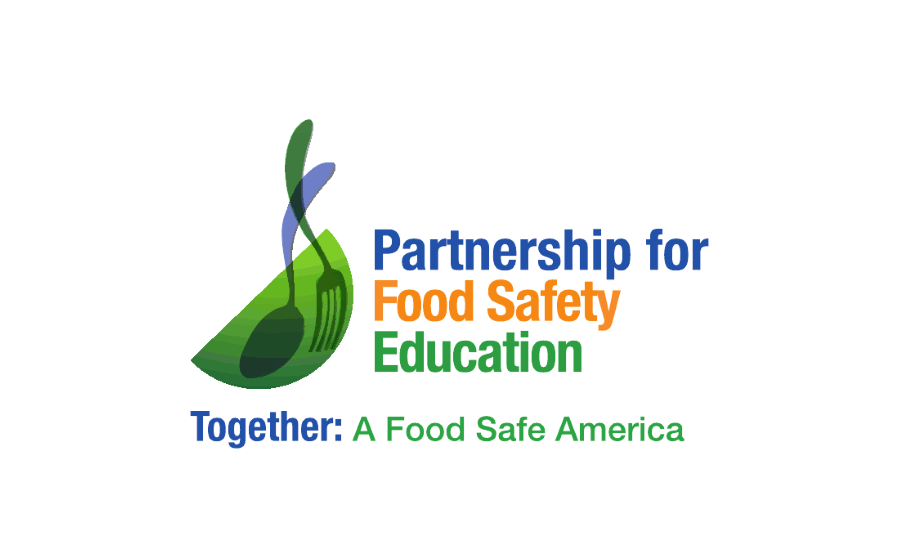Consumer Resources
Consumer Food Safety
Food safety is a core value for the milling industry and our customers. The milling industry strives to provide safe, healthy, and affordable food for our customers and consumers. Good manufacturing practices (GMP), food safety plans, training, and process monitoring are tools utilized by the milling industry to meet the highest food safety standards.
Flour is made from wheat grown and harvested in nature, and as such, it is possible for wheat to be exposed to environmental sources of naturally occurring pathogens. Raw flour is not ready-to-eat and consumers should not eat or taste raw flour, dough or batter prior to cooking or baking as they can cause illness if harmful bacteria are present.
There’s a common misconception that microwaving flour makes it safe to eat uncooked, but microwave heating can be uneven, especially if the food has many parts and surfaces like flour. However, it is important for consumers to know that proper cooking and baking eliminates the food safety risk associated with E. coli in raw wheat flour, dough and batter.
To promote safe use of our products and consumer food safety, NAMA members produced an educational video to demonstrate proper handling and baking procedures.

Additional Resources
Food Safety Poster • English
Food Safety Poster • Spanish
Food Safety Poster • French
U.S. Food and Drug Administration: Handling Flour Safely – What You Need to Know
Centers for Disease Control and Prevention: Say No to Raw Dough
Centers for Disease Control and Prevention: Safer Food Choices
Partnership for Food Safety Education: Baking and Flour Food Safety
Home Baking Association: Baking Food Safety 101
Continue Learning
What is Milling?
Milling is the process of cleaning, tempering, and grinding cereal grains into flour and other milled grain products.



